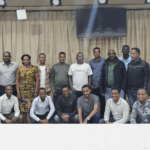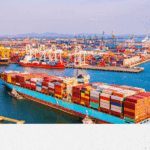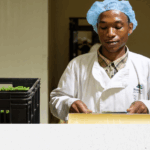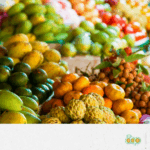- 27/09/2024
- Posted by: Sandra Borma
- Category: News

Gender mainstreaming in agricultural vocational training: the FAR 2024 leading theme
From 17 to 19 September, COLEAD, through its FFM+ programme, took part in the international seminar “FAR 2024” on gender mainstreaming in agricultural and rural training. It was an opportunity to meet and exchange views with key actors in the agricultural and training sectors, including gender experts, international partners such as the World Bank, members of the FAR network and numerous organisations involved in development in Africa.
The aim of the FAR (Formation Agricole et Rurale) network is to contribute to the professional and social integration of young people and producers through training, and it currently has 19 member countries: Algeria, Benin, Burkina Faso, Cameroon, Central African Republic, Chad, Comoros, Côte d’Ivoire, Democratic Republic of Congo, Guinea, Haiti, Madagascar, Mali, Mauritania, Morocco, Niger, Senegal, Togo and Tunisia.
The FAR 2024 international seminar was also an opportunity for COLEAD to update its knowledge and continuously improve its practices on gender mainstreaming in training. COLEAD also had the opportunity to contribute to discussions on policies and strategies to reduce gender inequalities in agriculture. It is also a means of supporting advocacy in this area with international decision-makers.
According to the FAO, reducing the productivity gap that still too often exists between men and women, among other due to women’s lack of access to information and training, would increase agricultural yields and reduce the number of hungry people in the world. This is what gender mainstreaming is all about. COLEAD promotes this approach through its Gender Strategy and Action Plan, which proposes concrete measures and actions to integrate the gender dimension into its programmes and activities.
Read our gender equality statement of intent
This activity is supported by the Fit For Market Plus (FFM+) programme, implemented by COLEAD within the Framework of Development Cooperation between the Organisation of African, Caribbean and Pacific States (OACPS) and the European Union. This publication receives financial support from the European Union and the OACPS. The content of this publication is the sole responsibility of COLEAD and can in no way be taken to reflect the views of the European Union or the OACPS.





